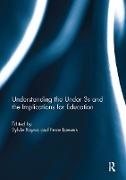Read more
This book originats from an awareness of the persistent lack of knowledge supporting a more respectful reception and approach to the youngest in our changing societies. It follows initiatives of networks of researchers from several countries, sharing insights from current studies carried out in their different cultures. This book was origina
List of contents
1. Understanding children from 0 to 3 years of age and its implications for education. What’s new on the babies’ side? Origins and evolutions Sylvie Rayna and Ferre Laevers 2. What young children give to their learning, making education work to sustain a community and its culture Colwyn Trevarthen 3. Companionable learning: a mechanism for holistic well-being development from birth Rosemary Roberts 4. Sharing attention and activities among toddlers: the spatial dimension of the setting and the educator’s role Tullia Musatti and Susanna Mayer 5. Early education for diversity: starting from birth Júlia Oliveira-Formosinho and Sara Barros Araújo 6. Look at me! Does the adult truly see and respond to the child in Finnish day-care centres? Marjatta Kalliala 7. From the curriculum framework to its dissemination: the accompaniment of educational practices in care facilities for children under three years Florence Pirard 8. Promoting language in under 3s. Assessing language development and the quality of adult intervention Ferre Laevers, Evelien Buyse, Annemieke Willekens and Tine Janssen
About the author
Sylvie Rayna is researching and teaching at the French Institute of Education (IFE) in the Ecole Normale Supérieure of Lyon (ENSL) and at University Paris 13 where she is in charge of the research program ‘Early Childhood’ within the research center EXPERICE. She has worked on socio-cognitive development and carried out evaluations of ECEC policies and comparative studies.
Ferre Laevers is director of the Research Centre for Experiential Education (EXE) based at the University of Leuven, Belgium. Through practice oriented research, development and dissemination EXE became an influential educational movement with concepts, instruments and materials inspiring researchers, practitioners and policy makers in ECEC all over the world.
Summary
This book originats from an awareness of the persistent lack of knowledge supporting a more respectful reception and approach to the youngest in our changing societies. It follows initiatives of networks of researchers from several countries, sharing insights from current studies carried out in their different cultures. This book was origina

